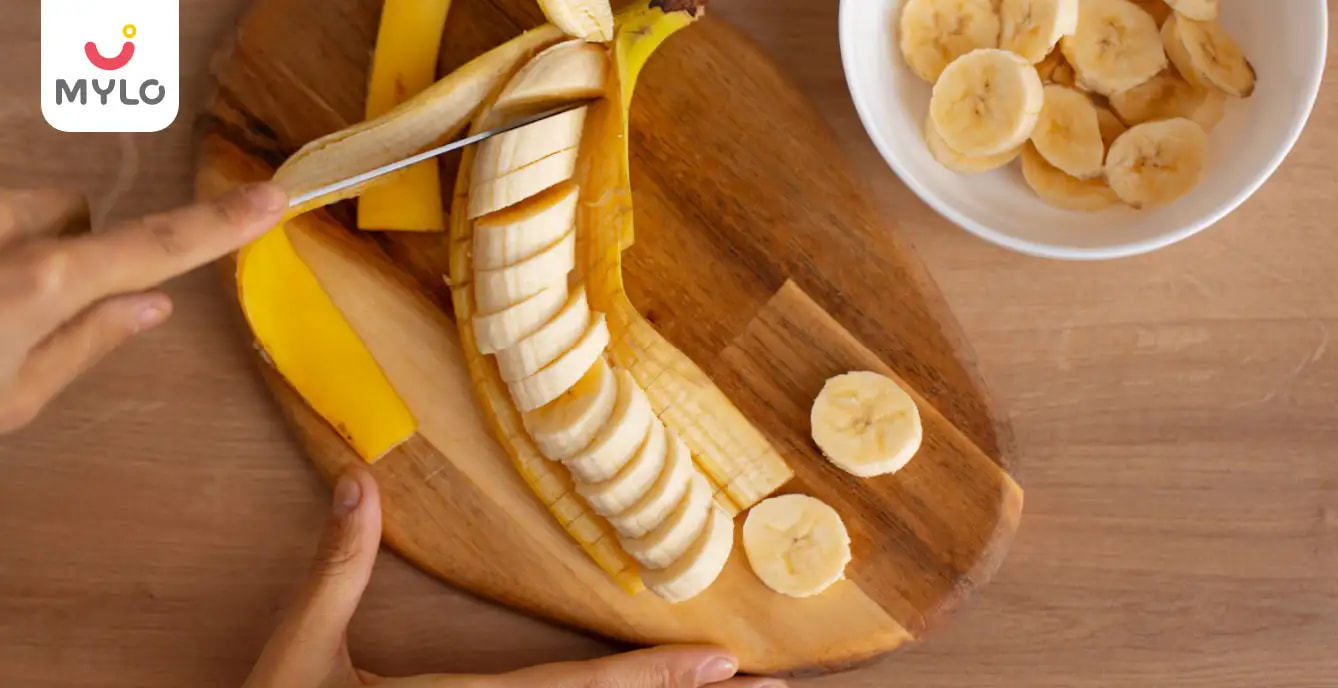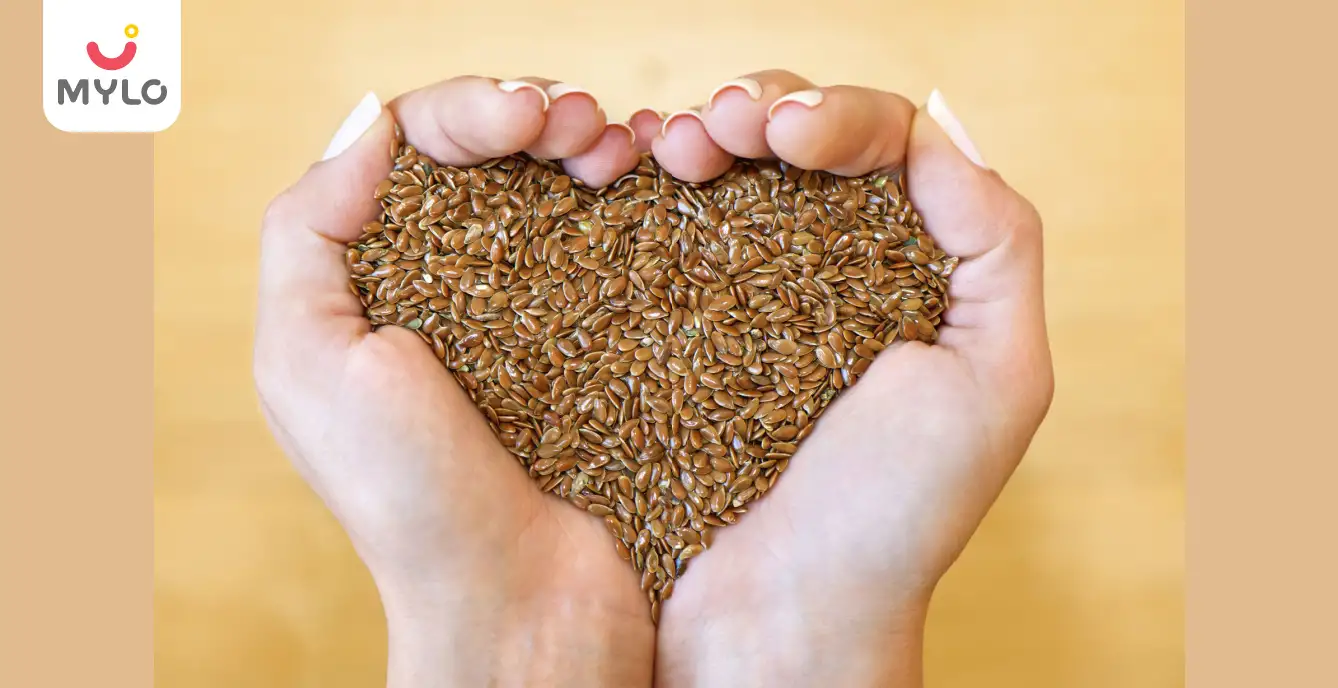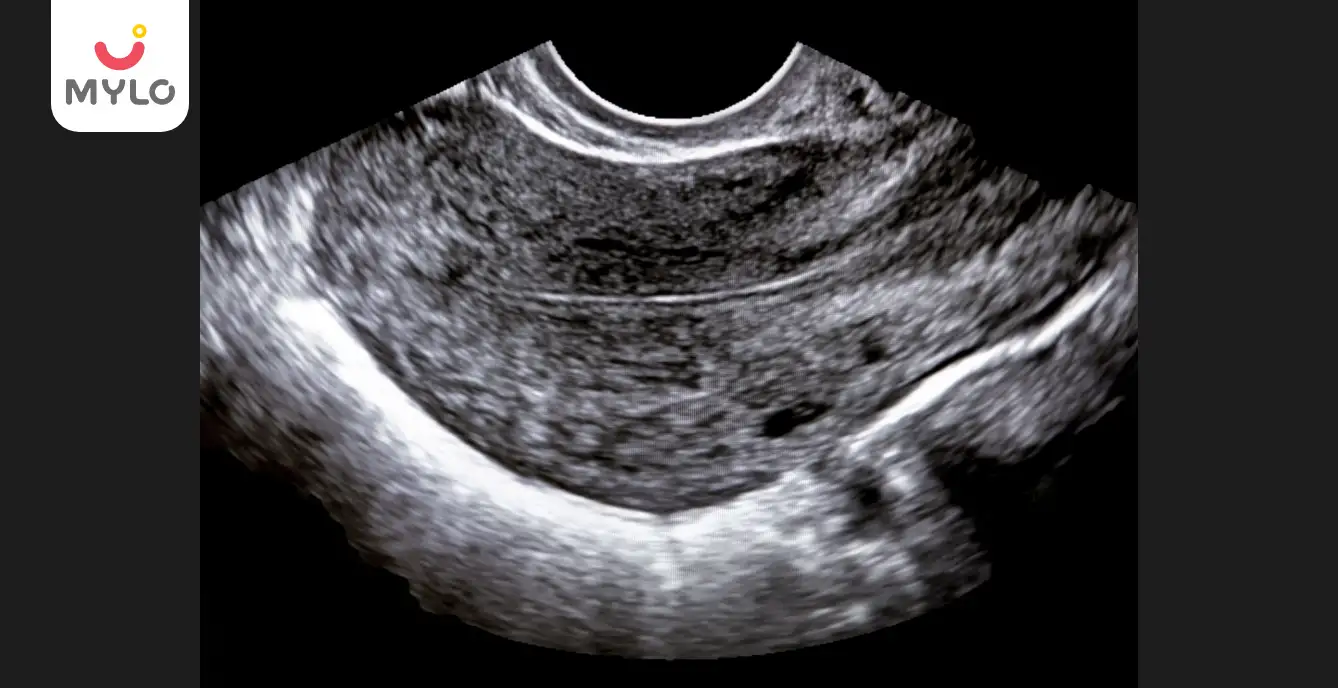Home

Diet & Nutrition

Is Banana Good for PCOS: A Comprehensive Guide to Understanding Their Relationship
In this Article

Diet & Nutrition
Is Banana Good for PCOS: A Comprehensive Guide to Understanding Their Relationship
Updated on 14 September 2023



Medically Reviewed by
Dr. Shruti Tanwar
C-section & gynae problems - MBBS| MS (OBS & Gynae)
View Profile

In the complex world of Polycystic Ovary Syndrome (PCOS), dietary choices play a pivotal role in managing its symptoms and promoting overall well-being. Among the myriad of fruits available, bananas often find their way into our daily diets. But is banana good for PCOS? In this comprehensive guide, we will navigate the relationship between bananas and PCOS, uncover the potential benefits, and address the concerns surrounding bananas in the context of PCOS.
What is the link between banana and PCOS?
Bananas can be a part of a healthy PCOS diet, however, there are some considerations to keep in mind. Bananas contain a lot of sugar which can impact blood glucose levels, so it is important to follow a low-sugar PCOS diet and limit serving sizes of bananas.
Eating bananas with protein and fat can help lower the impact on blood glucose levels. Fresh or frozen whole bananas are better than dried ones. Additionally, there are PCOS-friendly recipes that use bananas as a sugar substitute. Overall, moderation is key when consuming banana for PCOS.
You may also like : PCOS Food List: Your Guide to Eating Smart with PCOS
Common myths about eating banana for PCOS
There are several misconceptions surrounding the consumption of bananas for women with PCOS. Let's debunk these myths one by one:
Myth 1: Bananas cause weight gain in women with PCOS
One common myth is that bananas can lead to weight gain in women with PCOS. However, this is not entirely accurate. Bananas are relatively low in calories and are a good source of fiber, which can actually aid in weight management. It is important to remember that weight gain is influenced by various factors, including overall calorie intake and physical activity levels, rather than a single food item.
You may also like : PCOS Weight Loss in 1 Month: How to Shed Pounds Fast
Myth 2: Bananas are high in sugar and should be avoided by women with PCOS
While it is true that bananas contain natural sugars, they also provide essential nutrients and are a healthier alternative to processed sweets. The sugar in bananas is balanced by the fiber content, which slows down digestion and prevents rapid spikes in blood sugar levels. Moderation is key, and including a banana as part of a balanced diet can be beneficial for women with PCOS.
Myth 3: Bananas worsen insulin resistance in women with PCOS
Insulin resistance is a common feature of PCOS, and some people believe that bananas can exacerbate this condition. However, bananas have a low glycemic index (GI), which means they have a mild impact on blood sugar levels. In fact, the fiber and resistant starch in bananas can help improve insulin sensitivity over time. Including bananas in a well-rounded diet can actually be a part of managing insulin resistance in women with PCOS.
Myth 4: Bananas contribute to hormonal imbalances in women with PCOS
Hormonal imbalances are a hallmark of PCOS, but there is no scientific evidence to suggest that bananas directly contribute to these imbalances. Bananas contain a variety of nutrients, including vitamin B6, which is involved in hormone regulation. However, it is important to note that a balanced diet is crucial for overall hormonal health, and bananas should be consumed as part of a nutrient-rich meal plan.
Myth 5: Bananas should be completely avoided by women with PCOS
Contrary to popular belief, bananas do not need to be completely avoided by women with PCOS. They can be enjoyed as part of a well-rounded diet, providing essential nutrients and health benefits. As with any food, moderation is key, and it is important to listen to your body and make dietary choices that work best for you.
You may also like : Flax Seeds for PCOS: How This Superfood Can Improve Symptoms
Is banana good for PCOS?
After debunking the myths surrounding banana and PCOS, it is clear that bananas can be a beneficial addition to the diet of women with PCOS. Here are some reasons why banana is good for PCOS:
1. Nutrient-rich
Bananas are packed with essential vitamins and minerals, including vitamin C, potassium, and magnesium. These nutrients play a crucial role in overall health and can support the management of PCOS symptoms.
2. High in fiber
Fiber is an important component of a PCOS-friendly diet, as it aids in digestion, promotes satiety, and helps regulate blood sugar levels. Bananas are a good source of dietary fiber, which can contribute to better PCOS symptom management.
3. Natural energy boost
Fatigue and low energy levels are common complaints for women with PCOS. Bananas are a great natural energy source due to their carbohydrates and natural sugars, providing a quick and sustainable boost of energy.
4. Mood-enhancing properties
PCOS can have a negative impact on mental well-being, with mood swings and depression being common symptoms. Bananas contain tryptophan, which is converted into serotonin in the body, promoting a sense of calm and well-being.
5. Versatile and convenient
Bananas are a versatile fruit that can be easily incorporated into various meals and snacks. They can be enjoyed on their own, added to smoothies, used as a topping for oatmeal or yogurt, or even baked into delicious treats. This convenience makes them a practical choice for women with PCOS.
You may also like : Papaya for PCOS: Exploring the Link and How It Can Positively Impact Your Health
How to incorporate banana in your diet?
Now that you understand the benefits of banana for PCOS, here are five delicious and nutritious ways to incorporate them into your diet:
1. Banana smoothie
Blend a ripe banana with your choice of milk, a handful of spinach or kale, and a scoop of protein powder for a nutritious and filling smoothie. This is a great option for a quick breakfast or post-workout snack.
2. Banana and nut butter toast
Spread your favorite nut butter, such as almond or peanut butter, on whole grain toast. Top it off with sliced bananas for a satisfying and energizing snack.
3. Banana and yogurt parfait
Layer sliced bananas, Greek yogurt, and a sprinkle of granola or nuts in a glass or bowl. This simple and nutritious parfait makes for a delicious breakfast or snack.
4. Banana ice cream
Peel and freeze ripe bananas, then blend them in a food processor until creamy. This dairy-free and naturally sweet treat can be enjoyed as a guilt-free dessert.
5. Banana oat pancakes
Combine mashed bananas, oats, eggs, and a dash of cinnamon to create a batter for healthy and gluten-free pancakes. Cook them on a non-stick pan and serve with your favorite toppings.
The Bottomline
In answer to our initial question- is banana good for PCOS, bananas can be nutrient-rich, high-fiber foods that provide a natural energy boost, have mood-enhancing properties, and aid in various culinary creations. However, as with any food, moderation is key. It is important to listen to your body and work with a healthcare professional or registered dietitian to create a well-rounded meal plan that meets your individual needs.
References
1. Shahid R, Iahtisham-Ul-Haq, Mahnoor, Awan KA, Iqbal MJ, Munir H, Saeed I. (2022). Diet and lifestyle modifications for effective management of polycystic ovarian syndrome (PCOS). J Food Biochem.
2. Farshchi H, Rane A, Love A, Kennedy RL. (2007). Diet and nutrition in polycystic ovary syndrome (PCOS): pointers for nutritional management. J Obstet Gynaecol.





Medically Reviewed by
Dr. Shruti Tanwar
C-section & gynae problems - MBBS| MS (OBS & Gynae)
View Profile


Written by
Anandita Sharma
Drawing on more than a decade of expertise in administration, Anandita Sharma currently serves as a content operations e
Read MoreGet baby's diet chart, and growth tips

Related Articles
Related Questions
Hello frnds..still no pain...doctor said head fix nhi hua hai..bt vagina me pain hai aur back pain bhi... anyone having same issues??

Kon kon c chije aisi hai jo pregnancy mei gas acidity jalan karti hain... Koi btayega plz bcz mujhe aksar khane ke baad hi samagh aata hai ki is chij se gas acidity jalan ho gyi hai. Please share your knowledge

I am 13 week pregnancy. Anyone having Storione-xt tablet. It better to have morning or night ???

Hlo to be moms....i hv a query...in my 9.5 wk i feel body joint pain like in ankle, knee, wrist, shoulder, toes....pain intensity is high...i cnt sleep....what should i do pls help....cn i cosult my doc.

Influenza and boostrix injection kisiko laga hai kya 8 month pregnancy me and q lagta hai ye plz reply me

RECENTLY PUBLISHED ARTICLES
our most recent articles

Diet & Nutrition
Flax Seeds for PCOS: How This Superfood Can Improve Symptoms

Herbal Medicines
Shankhpushpi: Discover the Health Benefits of This Ancient Herb

Herbal Medicines
Chamomile: The Ultimate Guide to Discovering its Medicinal Properties and Health Benefits

Women Specific Issues
Endometrial Thickness in Pregnancy: Your Guide to Understanding What is Normal

Menstrual Cycle
Hypomenorrhea: When Your Period is Lighter Than Usual

Scans & Tests
Anti Mullerian Hormone Test: The Key to Early Detection of Fertility Issues
- Benefits of HSG Test: The Secret to Boosting Your Chances of Getting Pregnant
- Deviry Tablet Uses: How to Maximize The Benefits for Your Reproductive Health
- Endometrial Thickness for IVF: The Ultimate Guide to Successful IVF Outcomes
- Normal Endometrial Thickness: A Key Indicator of Female Fertility
- Uterine Artery Embolization: A Non-Invasive Solution for Fibroids
- Deviry 10mg for Menstrual Disorders: Is It the Right Choice for You
- Hyperprolactinemia: How High Prolactin Levels Can Affect Your Chances of Conception
- Myomectomy: A Comprehensive Guide to Uterine Fibroid Removal Surgery
- The Hormonal Dance: Understanding Which Hormones Regulate Menstrual Cycle
- 7 home remedies to cure cough and cold in infants
- How to Increase Endometrial Thickness: Your Guide to Science-Backed Tips
- Endometrial Scratching: The Ultimate Guide to Meaning, Benefits and Impact on Conception
- The Ultimate Guide to Buying a Baby Bath Tub for New Parents
- Strawberry in Pregnancy: Why Should This Fruit Be on Your Pregnancy Platter?


AWARDS AND RECOGNITION

Mylo wins Forbes D2C Disruptor award

Mylo wins The Economic Times Promising Brands 2022
AS SEEN IN

- Mylo Care: Effective and science-backed personal care and wellness solutions for a joyful you.
- Mylo Baby: Science-backed, gentle and effective personal care & hygiene range for your little one.
- Mylo Community: Trusted and empathetic community of 10mn+ parents and experts.
Product Categories
baby carrier | baby soap | baby wipes | stretch marks cream | baby cream | baby shampoo | baby massage oil | baby hair oil | stretch marks oil | baby body wash | baby powder | baby lotion | diaper rash cream | newborn diapers | teether | baby kajal | baby diapers | cloth diapers |




